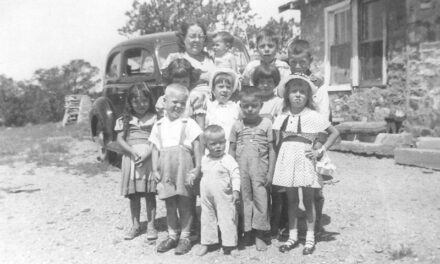Senior Source
As people age, sometimes they often need more support and care than in their younger years, as well as protection from those who would abuse, neglect or exploit them.
For adults who find themselves in need of help, there is a state agency that can not only provide resources before a situation reaches a critical point but can investigate and intervene if necessary.
Adult Protective Services is the centralized, statewide protective agency tasked with investigating abuse, neglect and exploitation — ANE, as well as self neglect of those 18 and older. APS falls under the umbrella of New Mexico’s Aging and Long-term Services Department, which upholds the motto and mission of lifelong independence and healthy aging.
Newly-appointed APS Director Esperanza Lucero says the agency has made a concerted effort in recent years to focus on prevention and intervention to address ANE, as well as self neglect, of adults.
APS is the agency that investigates abuse, neglect and exploitation of adults, Lucero said, a role she and all APS caseworkers take extremely seriously, but it also offers a wide array of preventative services.
“A lot of the things we do aligns with the harm reduction principles to develop a strategy to support individuals and those involved in their care,” Lucero said. “We look at resources that can prevent problems so we have fewer recurrences. We find support and services, and look at how we can help people continue to do things normally.”

Stock image
By using the least restrictive, person-centered model, APS can often keep clients out of the “system” and institutional care, allowing them to remain in their homes and communities as they age.
“We are often grouped with child protective services, but APS is very distinct. We deal with adults and honor their self-determination and personal choices,” she said. “If they have the ability to make decisions — which is a lot of the people we work with; we don’t have a lot who lack capacity — then we have to honor their decision for the kind of care they receive, who they give their money to, the conditions they live under.
“We are providing resources and linkage to community and internal resources so people can stay in their homes and communities, and continue to age in place.”
When a call comes into the APS intake line — 866-654-3219 — there are two paths — an investigation of abuse, neglect or exploitation or a gathering of resources.
“We can walk people through applying for Medicaid, finding home assistance, food or housing resources,” the director said. “We find resources in their county.”
If someone sees an adult struggling, Lucero encouraged friends and family to reach out to APS’s Aging and Disability Resource Center at 800-432-2080
“We suggest them as a first line of help. If there is any indication of abuse, then that goes to APS. You don’t need to prove it,” she said. “If something just is not right, trust your gut and make the report. Let us do the investigation.”
Statewide Resources
New Mexico Aging and Long-term Services Department
Aging and Disability Resource Center
800-432-2080
Adult Protective Services Intake
866-654-3219
Lucero said something as seemingly benign as a urinary tract infection can cause the perception of lost capacity in a person.
“Maybe there aren’t symptoms. It can cause memory issues and people can seem not quite themselves,” she said. “We had that happen with a client. We got them in to a doctor and on antibiotics. A few days later, they were a whole other person. Our caseworkers are trained to understand these types of ailments can effect someone’s capacity temporarily.”
A community member can report a suspected case of adult ANE by phone or online at aging.nm.gov. Either way, they can remain anonymous. Lucero said the agency never discloses who makes the reports, but sometimes a reporter can provide additional information to help caseworkers make contact with the potential client.
“If we’ve gone out to their house three or four times and can’t locate them, maybe the person who made the report knows they go to the local senior center at a certain time every day,” she said. “That can help us make contact but we never disclose a reporter.”
A reporter will most likely not know what services are provided, Lucero said, and neither will neighbors. Caseworkers visit homes in a quiet way, so as to not call attention to their presence.
“If an adult needs services, needs help, that’s their business, no one else’s,” she said.
Lucero said APS is always happy to do outreach events in the community, to provide awareness and understanding about the agency.
While APS caseworkers can go to an adults home to assess their situation and offer resources, the adult can ultimately close the door and not allow them in, she reminds the public.
“We rely on our staff’s ability to build rapport and trust with that adult so they feel like they can be transparent with what is happening and accept resources, to trust them enough to help make a plan,” she said. “It’s a testament to our staff of how well they can take that 30-second engagement and make a connection.
“They might not accept help today, there might be a repeat report six or eight months down the road. We try to assign the same person so if they’ve made in roads, maybe they’ll accept services the second time around. Or the sixth time. Never refrain from calling. That diligence could really make a difference now or in the future.”
Julia M. Dendinger began working at the VCNB in 2006. She covers Valencia County government, Belen Consolidated Schools and the village of Bosque Farms. She is a member of the Society of Professional Journalists Rio Grande chapter’s board of directors.





















